Days after gunshots and death, Capital Jewish Museum reopens with purpose
With faith leaders, city officials and supporters crowding into the sun-splashed glass lobby, the Capital Jewish Museum reopened after it was the scene of a violent killing last week.
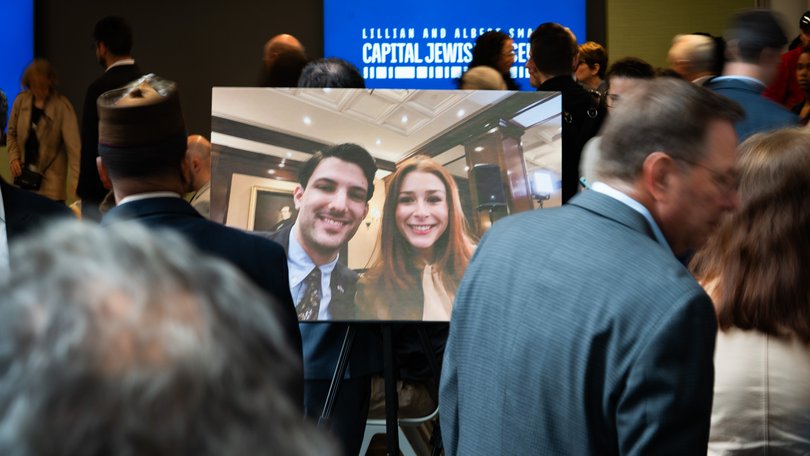
With faith leaders, city officials and supporters crowding into the sun-splashed glass lobby Thursday morning, the Capital Jewish Museum reopened after it was the scene of a violent killing last week.
A Chicago man shot and killed Yaron Lischinsky, 30, and Sarah Lynn Milgrim, 26, on May 21 as they were leaving an event for young diplomats at the museum, located at the corner of Third and F streets NW. Elias Rodriguez, 31, was arrested at the scene and charged with two counts of first-degree murder and murder of foreign officials. According to an affidavit filed in federal court, Rodriguez told police, “I did it for Palestine, I did it for Gaza.”
The violence triggered grief and outrage both in the American Jewish community and beyond. The Trump administration has vowed to continue its campaign against antisemitism. Since last week, synagogues and Jewish organisations throughout D.C. have tightened security and been in regular contact with law enforcement.
Sign up to The Nightly's newsletters.
Get the first look at the digital newspaper, curated daily stories and breaking headlines delivered to your inbox.
By continuing you agree to our Terms and Privacy Policy.Standing in the lobby only steps away from where the young couple were gunned down, Beatrice Gurwitz, the museum’s executive director, told The Washington Post that reopening the location was not just about getting back to business as usual but also about honoring the magnitude of what happened.
“The kind of violence we saw grows out of the dehumanisation of the Jewish people,” Gurwitz sad. “What we do is tell stories about the Jewish experience and share the richness, diversity and vibrancy of Jewish life in the D.C. region. That all made us feel we had to reopen.”
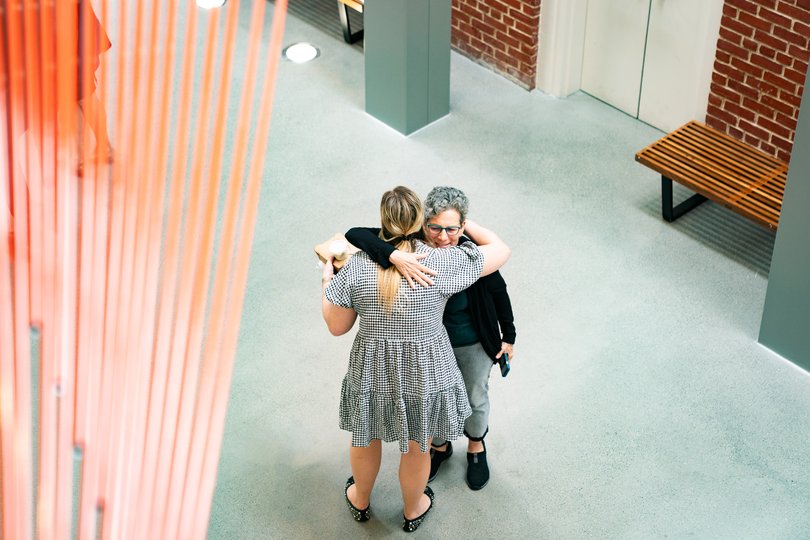
Gurwitz’s feelings were mirrored in comments delivered by D.C. Mayor Muriel E. Bowser (D) at the event.
“Part of my charge to my team in every difficult circumstance is that we have to get open,” Bowser said. “We have to get back to normal, to allow people to come back to work. We have to allow people to grieve, we have to allow people to talk, and we have to live our missions. So thank you for getting back open.”
Attendees arriving at the reopening ceremony were greeted by multiple photographs of Lischinsky and Milgrim. Both victims worked at the Israeli Embassy in Washington. As one of the speakers added on Thursday, Lischinsky was excited to return home to Israel for an upcoming holiday. He had recently bought a ring to propose to Milgrim.
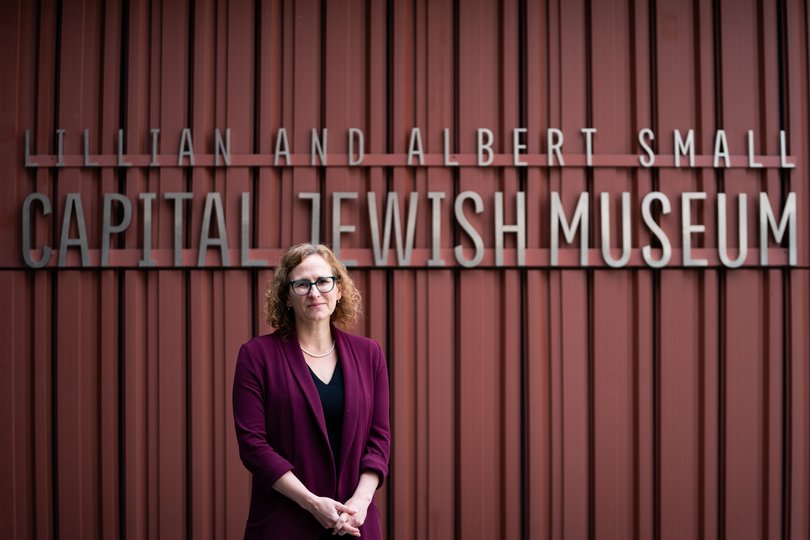
Flowers, candles and stones were still scattered around a makeshift memorial outside the museum. Gurwitz told The Post that the museum staff worked closely with both law enforcement as well as their own security staff for a safe reopening. The museum also wanted to be respectful of the grieving process for the victims’ family and friends.
Sue Stolov, president of American Jewish Committee Washington, which hosted the May 21 event, shared her own experience of that night. After decrying the antisemitism that she thought fuelled the attack, Stolov noted she had left the event, heading out into the rainy night, only minutes before the shooting.
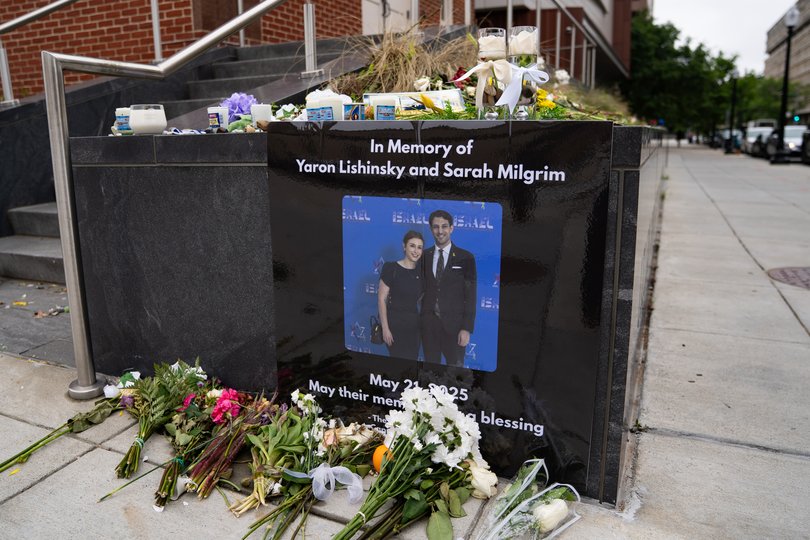
“I may have walked past the shooter,” she said.
Following the reopening event, guests were encouraged to tour the museum’s latest special exhibit, “LGBTJews in the Federal City.” The exhibit is timed with WorldPride, which has been taking place in D.C. and continues into June.
Gurwitz said the museum is also considering how to memorialise the tragedy of Lischinsky and Milgrim.
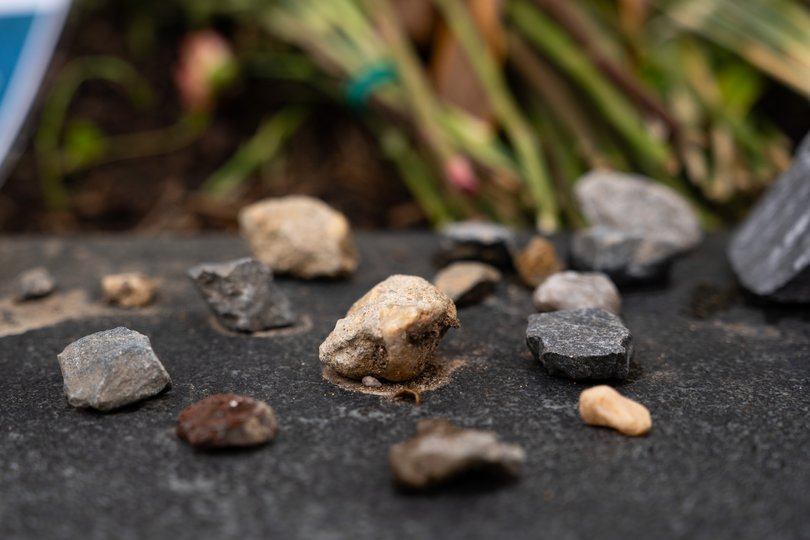
“We are also thinking about how we can honour their spirit going forward and integrate their legacy into the work we do,” Gurwitz said.
© 2025 , The Washington Post
